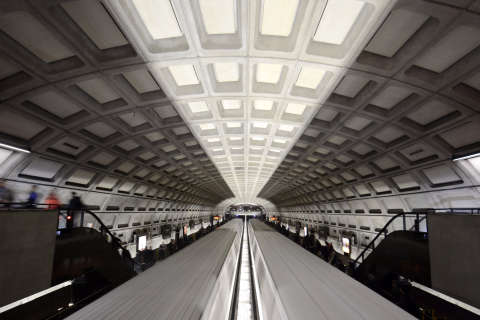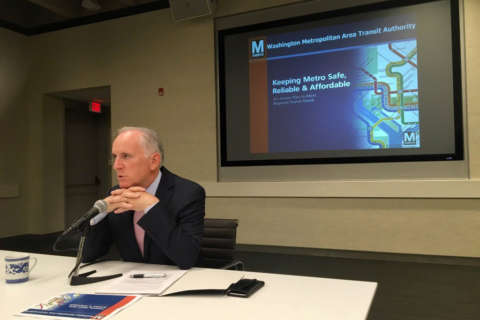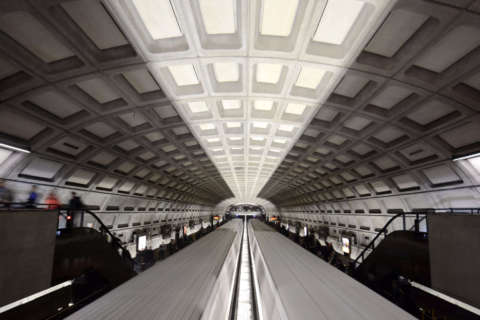WASHINGTON — The pushback from Virginia leaders on a possible regional sales tax to fund Metro is “fallacious,” Metro Board Chairman Jack Evans said Thursday.
Evans, who is also a D.C. Councilmember, said the one percent sales tax suggested last month by a Metropolitan Washington Council of Governments technical panel is clearly the best way to fix Metro’s significant capital funding problems.
“The regional sales tax is the only thing, in my view, that works. It’s what the other five [major] systems in America do and it is an easy-to-understand and an easy-to-implement tax. If one jurisdiction peels off and says, ‘Well, we don’t want to do that; we want to do something else,’ well, what is their share then? How much do they pay?” Evans said.
Several regional leaders, including U.S. Rep. Steny Hoyer, D-Maryland, have suggested that Maryland, Virginia and D.C. could each find different ways to cover their share of the costs, if that is what it takes to reach agreement on long-term dedicated funding.
Local government leaders in Virginia are concerned that a regional sales tax would lead to too large a share of Metro’s new funding coming from people at stores in Virginia, and in areas like western Loudoun County, far from any Metro stations.
“This is a region that’s fluid. You cannot quantify, ‘Oh, this is the amount that we pay, this is the amount that we pay,’ because everybody in the region is traveling across the region, spending money all across the region, that’s why the sales tax makes sense, because you’re capturing the regional money,” Evans said.
He cited his own experience buying cars in Virginia, since D.C. does not have dealerships. A sales tax, he added, meant that the millions of tourists to the region would contribute more to the system too.
“Now, the solutions are out there: Paul has put his plan out, [the technical panel] has said we need a 1 cent sales tax, and you’re getting all of the reaction, positive and negative, from the jurisdictions,” Evans said.
After the Metro Board’s committee meetings Thursday, Evans poured a bag of pennies onto a table and held one up for reporters.
“This is all I’m asking for — that’s it,” he said. “That isn’t too much to ask for to fix our Metro system, to make this again the pride not only of the region, of the nation. We have a plan to do it; we have a backup of all the information that’s out there. This isn’t just me talking a year and a half ago. This is Paul Wiedefeld’s plan; [he] has enormous credibility — this is it.”
In order for any new funding to be in place by Wiedefeld’s January 2019 deadline without a series of special sessions, the Virginia and Maryland general assemblies would have to approve legislation in the sessions that start in January 2018 and wrap up next spring.
“I’m hoping … that it proceeds along that course but a lot of decisions have to be made, and they’re not going to be popular ones, and if they aren’t made, then Metro is going to have to come up with a different plan,” Evans said.
Wiedefeld suggested his initial capital budget proposal, set to come out this fall for Metro’s fiscal year beginning in July 2018, could paint a stark picture of what Metro expects to be able to do with new money, and what the agency will say it will not be able to do without it.
“On the capital side I’m particularly talking about, the conditions of the system literally will not be addressed if we don’t get additional funds — they won’t be — at the same time that the system’s getting older,” Wiedefeld said.
“And as we do some of these preventive maintenance things, as we learn more about what’s out there, I would not be surprised if we learn that we need more things quicker.”







